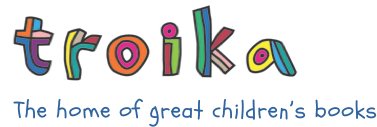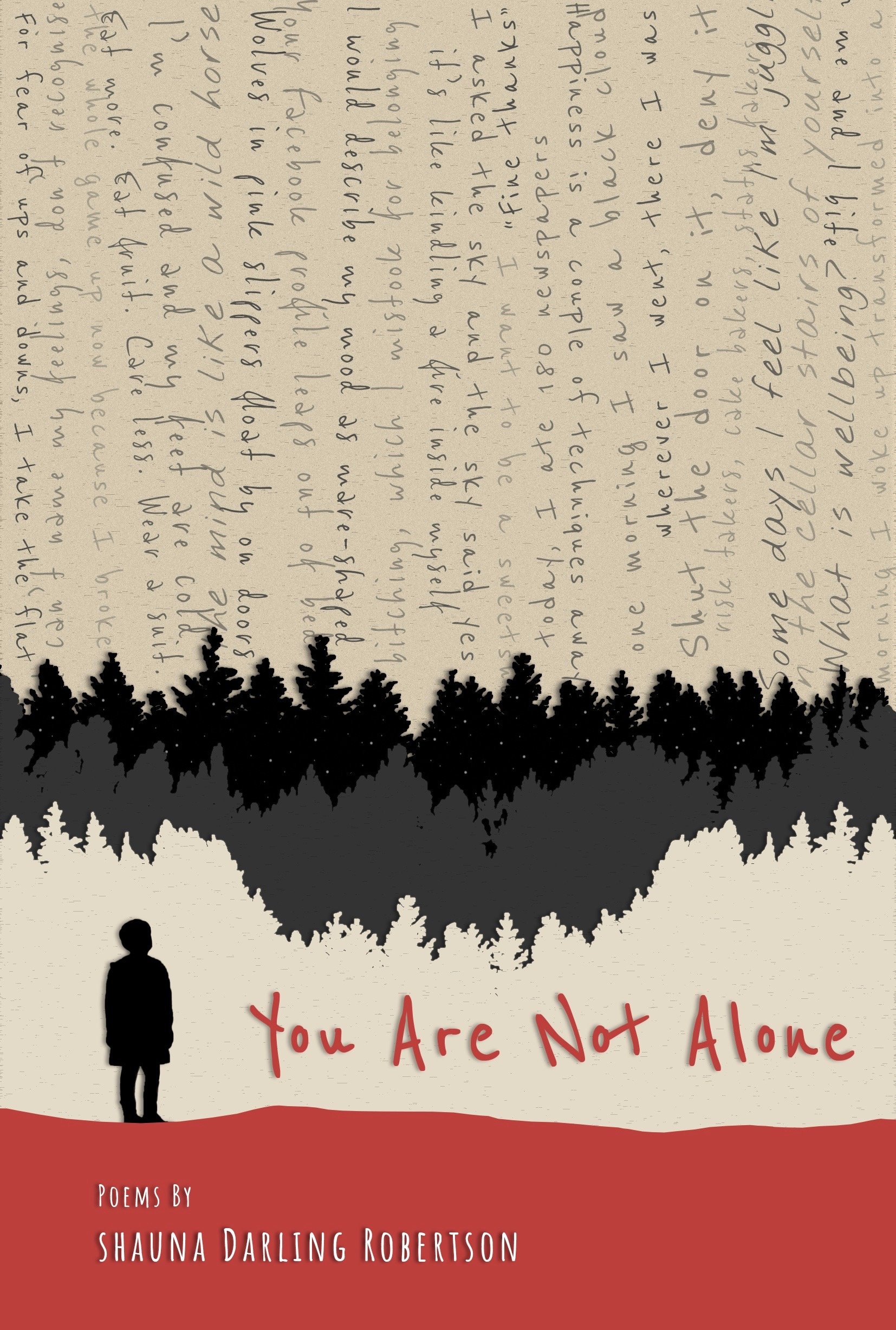New mental health poetry collection for teens and young adults: ‘You Are Not Alone’ by Shauna Darling Robertson
It’s Children’s Mental Health Week (6-12 February 2023), an annual event organised by the national charity Place2Be. This year’s theme is Let’s Connect, which is something we’ve been thinking about a lot here at Troika since this is also the week we launch a brand new poetry collection on that very topic!
You Are Not Alone by Shauna Darling Robertson is aimed at teen and young adult readers and it’s all about young people’s mental health and emotional wellbeing.
Fans of Shauna’s first children’s collection, Saturdays at the Imaginarium (written with ages 7+ in mind) will recognise her highly original style, one that can move deftly from the quirky and mischievous, to deep-diving into a topic and encouraging us to reflect on how we see ourselves, each other and our world.
“How have you been feeling lately?” she asks.
“Over the past month I’ve had little interest in
frills / holdalls / giving figs.”
Described as “striking, beautiful and full of grace”, the collection’s 70+ poems aim to take a broad view of ‘mental health’. They span a wealth of themes, from how it can feel to live with various mental health conditions, to what it’s like dealing with the everyday pressures and challenges that many teenagers and young adults face.
“When we talk about mental health, it’s often in the context of diagnosable conditions,” says Shauna, “and it’s vital to talk more openly about these. At the same time, it’s also important to talk about the day-to-day mental wellbeing of everyone, and about what we can do - individually and as a society - to support that wellbeing. Just like our physical health, our mental health takes maintenance – because life’s neither perfect nor always easy!”
“What the Mind Is Like”
Shauna’s poems take us on quite a journey, from “What the Mind Is Like” (“sometimes like a wild horse and sometimes like disco lights”) to experiences of different types of issues such as anxiety (“I tap the window twenty times, ten with the left index finger, ten with the right”); from the influences of social media (“A Day in the Life of Your Inner Instagrammer”) to definitions of wellbeing (“A house that can fly, says Alexa”); and from feeling excluded or unwanted (“please take me back to the Oxfam shop”) to finding allies and sources of support (“she came over, put her hand on my shoulder…”).
“The poems are based on real voices, real experiences,” says Shauna. “Some of the voices are mine and some belong to friends, family, people I’ve met along the way and people I’ve read or heard about. In each poem you’ll find a fusion of several voices, so the poems aren’t individually biographical as such.”
What prompted Shauna to write the book?
“As you might guess, I have a personal history with mental health,” she says. “Through my teens and early twenties I had a sense that something wasn’t quite right, that I wasn’t quite right. Looking back I can see that I was struggling with a number of family issues and personal challenges, but since nobody really knew or spoke about the effects of such things back then, I was convinced there was something wrong with me, like I had some kind of ‘design fault’.
“I didn’t like myself at all and I was afraid of others seeing ‘the truth’ about me, so I put on an act and tried to appear ‘normal’. I turned myself inside out to fit in and be acceptable, all the while hiding and silencing and censoring myself. But the self doesn’t like to be tied up in knots that way, and so in time I began to unravel quite badly. Eventually I was diagnosed with severe depression and, thankfully, I was able to get the help I needed to begin a process of learning and recovery.
“Along the way, I met some of my favourite people in the world, all of whom have have struggled at some point or another with aspects of their mental health. Do you know how amazing it feels to finally find yourself among a group of people you can get real with. I mean totally, unapologetically, down-and-dirty-to-the-depths-of-your-being real? It’s so liberating! And it’s healing, because that’s when you truly know that you’re not alone - and that’s where the book’s title comes from.”
Shauna is immensely grateful to Arts Council England for their support with the development of this collection, as well as with the production of a number of resources including teaching notes (forthcoming) and videos such as this one.
Find out more, read some extracts from the book and watch a several more short poetry films from You Are Not Alone at www.troikabooks.com/you-are-not-alone


